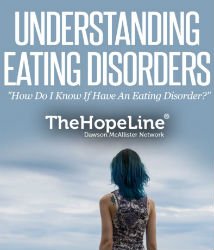Effective Communication Strategies for Families of Eating Disorders
Effective communication is crucial for families navigating the complex landscape of eating disorders, particularly within the unique cultural context of New Zealand. Understanding family eating dynamics is essential for fostering supportive conversations that can facilitate recovery. Families often play a pivotal role in the healing process, and by employing effective communication strategies, they can create an environment that nurtures understanding and compassion.
In New Zealand, families are increasingly recognizing the importance of addressing their eating dynamics and the impact of cultural influences on these issues. Resources such as NZ Family Support for Eating Disorders provide valuable insights and tools to help families engage in meaningful dialogue. By focusing on empathetic communication, families can better support their loved ones while also addressing their own needs and dynamics in the journey toward recovery.
Understanding Eating Disorders in the New Zealand Context
Eating disorders are complex mental health conditions that impact individuals and their families. In New Zealand, the prevalence of eating disorders, particularly among adolescents, is rising. Understanding the cultural and social factors that contribute to these conditions is crucial for families. New Zealand’s unique blend of cultures, including Māori and Pacific Islander influences, shapes the attitudes toward body image and eating habits.
Family eating dynamics play a significant role in the development and recovery from eating disorders. Open discussions about food, appearance, and health can either foster resilience or contribute to harmful behaviors. Educating families about these disorders is the first step in promoting supportive conversations. Resources such as Eating Disorders New Zealand provide valuable information that can help families understand the signs and symptoms of eating disorders, as well as how to approach these sensitive topics with empathy and care.
Recognising the importance of cultural sensitivity is vital when addressing eating disorders. Māori concepts of health, such as “whānau” (family) support and “mauri” (life force), can provide meaningful frameworks for families in New Zealand. Incorporating these values into family discussions can help create a more inclusive environment that encourages open and honest communication.
Creating a Safe Space for Conversations
Establishing a safe and supportive environment is essential for families dealing with eating disorders. This means fostering an atmosphere where every family member feels comfortable expressing their thoughts and feelings without fear of judgment or repercussion.
To create this safe space, families should set aside time for regular family meetings or check-ins. During these sessions, encourage everyone to share their experiences and feelings related to food and body image. It is important to actively listen and validate each other’s feelings. For instance, if a family member expresses anxiety about their eating habits, responding with understanding rather than criticism can help them feel heard and supported.
Family eating dynamics often influence individual behaviors, and acknowledging this can pave the way for healthier interactions. For example, discussing the importance of balanced meals together and involving everyone in meal planning can help diminish the stigma around eating. Additionally, incorporating cultural foods that are significant to each family member’s heritage can enhance feelings of belonging and acceptance.
Consider utilizing resources from Eating Disorders New Zealand to facilitate these discussions. They provide guides and strategies that can help families navigate sensitive topics more effectively, ensuring that everyone’s voice is included.
Promoting Healthy Body Image Within Families
A supportive family environment can significantly influence the development of a healthy body image among family members. In New Zealand, societal pressures regarding appearance can impact individuals, particularly young people. As families navigate these pressures, it is essential to foster a positive body image through open and constructive dialogue.
Encourage discussions about body positivity by focusing on the strengths and abilities of each family member, rather than their appearance. For example, during family activities, such as sports or arts and crafts, highlight the joy of movement and creativity rather than the physical outcomes. This shift in focus can help family members appreciate their bodies for what they can do, rather than how they look.
Media literacy is also an important component of promoting a healthy body image. Families can engage in conversations about the unrealistic standards often portrayed in the media and how they affect self-esteem. Discussing these topics openly can help family members develop resilience against societal pressures and foster a sense of belonging within their family unit.
Utilise resources like Eating Disorders New Zealand to find tools and strategies that can help families cultivate a culture of body positivity. Workshops and educational materials can guide families in creating a more supportive environment for all members.
Encouraging Healthy Eating Patterns Together
Fostering healthy eating patterns is essential for families dealing with eating disorders. Establishing a family mealtime routine can significantly impact eating dynamics and promote positive behaviors towards food. Regular meals together provide opportunities for families to connect, share, and learn healthy habits in a supportive environment.
Involving every family member in meal preparation can also enhance their relationship with food. Encourage children and adolescents to participate in choosing recipes, shopping for ingredients, and cooking. This collaborative approach not only teaches essential life skills but also empowers family members to make healthier food choices.
It is important to discuss the importance of nutrition in a way that does not stigmatize certain foods. Instead of labeling foods as “good” or “bad,” families can focus on the benefits of a balanced diet that includes a variety of foods. This approach helps to prevent the development of disordered eating patterns and encourages a more nurturing relationship with food.
For families looking for guidance, Eating Disorders New Zealand offers resources that can help promote healthy eating habits. These resources can provide tips on meal planning, cooking, and understanding nutrition in a way that is accessible and family-friendly.
Recognising and Responding to Warning Signs
Being able to identify warning signs of eating disorders is crucial for families. Early intervention can lead to better outcomes for individuals struggling with these conditions. Families should be educated about the common symptoms of eating disorders, which may include significant changes in eating habits, excessive exercise, withdrawal from social activities, and preoccupation with body image.
It is essential for families to approach these warning signs with compassion and understanding. Instead of confronting a family member aggressively, consider using “I” statements to express concern. For example, saying “I’ve noticed you seem more withdrawn lately, and I’m worried about you” can open up a dialogue without placing blame.
Creating a family culture that emphasizes mental health alongside physical health can also be beneficial. Encourage discussions about mental well-being, making it clear that it is just as important as physical health. This shift can help family members feel more secure in expressing their struggles and seeking help.
Resources like Eating Disorders New Zealand provide valuable information on how to recognize warning signs and how to intervene effectively. Engaging with these resources can empower families to support each other through difficult times.
Seeking Professional Help Together
When it comes to eating disorders, professional help can be a vital component of recovery. Families should feel empowered to seek assistance from mental health professionals, dietitians, and support groups that specialize in eating disorders. In New Zealand, numerous resources are available for families to turn to for support.
Encouraging family members to attend therapy sessions together can help create a unified front in the recovery process. Family therapy can address the dynamics that contribute to eating disorders, allowing family members to understand their roles in the cycle of disordered eating. This holistic approach can facilitate healing for both the individual and the family unit.
Additionally, support groups can provide a sense of community and understanding. Families can benefit from connecting with others who are navigating similar challenges. Sharing experiences and strategies can reduce feelings of isolation and provide new perspectives on managing eating disorders.
For families in New Zealand, Eating Disorders New Zealand offers a directory of professionals and support services. Engaging with these resources can help families find the appropriate support systems to aid in recovery and promote healthier family eating dynamics.
Fostering Open Communication Moving Forward
Effective communication is a continuous process, particularly in families dealing with eating disorders. It is essential to maintain open lines of communication even after initial conversations have taken place. Families should regularly check in with one another about their feelings, experiences, and challenges surrounding food and body image.
Utilizing tools such as family journals can facilitate ongoing discussions. Encourage each family member to write down their thoughts and feelings, which can be shared during family meetings. This practice can help those who may be hesitant to speak up feel more comfortable expressing themselves.
As families navigate the recovery process, it is crucial to celebrate small victories together. Recognizing progress, no matter how minor, can reinforce positive behaviors and strengthen family bonds. For example, if a family member tries a new food or attends a social event centered around food, acknowledging these efforts can boost their confidence and motivation.
Lastly, continuing to educate yourselves about eating disorders is vital. The landscape of mental health is constantly evolving, and staying informed can help families adapt their communication strategies accordingly. Resources such as Eating Disorders New Zealand offer ongoing education and support that can be invaluable for families in this journey.
FAQs
What are some common signs of an eating disorder in family members?
Common signs of an eating disorder may include drastic changes in eating habits, excessive exercise, social withdrawal, and preoccupation with weight or body image. Family eating dynamics often shift during this time, making it crucial for family members to be observant and supportive, rather than judgmental.
How can families create a safe space for discussing eating disorders?
Creating a safe space involves fostering an environment of trust and openness. Families can establish regular check-ins where everyone feels comfortable sharing their feelings about food and body image. This approach helps to promote healthy family eating dynamics and encourages supportive conversations.
What role does active listening play in family discussions about eating disorders?
Active listening is essential in family discussions about eating disorders as it shows empathy and understanding. Family members should practice reflecting back what they hear, asking clarifying questions, and validating each other’s feelings. This builds stronger family eating dynamics and encourages individuals to express their concerns without fear of judgment.
How can families avoid triggering conversations about food?
Families can avoid triggering conversations by steering clear of discussions that focus on weight, dieting, or food restrictions. Instead, they should emphasize the importance of health and well-being. Encouraging positive family eating dynamics can help shift the focus from food to shared experiences, such as cooking together or engaging in physical activities.
What strategies can be employed to address conflicts related to eating habits?
Addressing conflicts related to eating habits requires open communication and problem-solving. Family members can use “I” statements to express their feelings without sounding accusatory. For instance, saying “I feel concerned when I see you not eating with us” can promote a healthier dialogue. Understanding and respecting each other’s perspectives can enhance family eating dynamics.
How important is it to involve professional help in family discussions about eating disorders?
Involving professional help, such as a therapist or nutritionist, can be very beneficial. Professionals can provide guidance on effective communication strategies and help families navigate complex emotions surrounding eating disorders. This collaboration can strengthen family eating dynamics and ensure that conversations remain supportive and constructive.
What resources are available for families in New Zealand dealing with eating disorders?
Families in New Zealand can access various resources, such as support groups, counseling services, and educational materials from organizations like the New Zealand Eating Disorders Clinic and the Butterfly Foundation. These resources can provide valuable information and support, helping to improve family eating dynamics and facilitate healthier conversations about eating disorders.
References
- Eating Disorders Association of New Zealand (EDANZ) – A key resource for information and support regarding eating disorders in New Zealand, including communication strategies for families.
- New Zealand Ministry of Health: Eating Disorders – Provides guidelines and resources for understanding and addressing eating disorders, emphasizing the importance of communication in treatment.
- Te Papa: Engaging with the Eating Disorder Community – Discusses initiatives and strategies for fostering supportive conversations about eating disorders within families and communities.
- Mental Health Foundation of New Zealand: Eating Disorders – Offers insights into effective communication strategies and family support resources related to eating disorders.
- Mental Health Awareness: Understanding Eating Disorders – Provides educational resources on eating disorders, including communication tips for families to foster supportive discussions.










Recent Comments